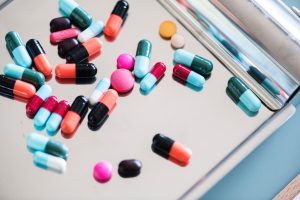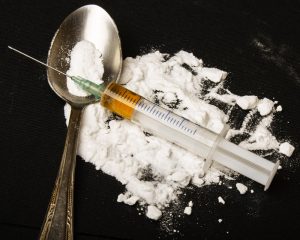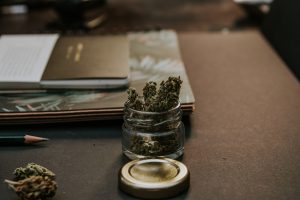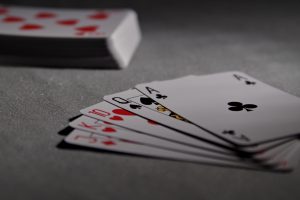
Addiction can be defined as a condition of being addicted to a particular substance, thing or activity that causes negative consequences for the individual. Often, people assume that addiction refers only to those who have a compulsive need for alcohol or drug. However, there are also those addicted to specific activities, such as shopping, gambling, or eating. It is possible to get addicted to almost anything, and with the growth of the internet and smartphones, experts are warning about the increase of people addicted to social media, online pornography, and gaming.
Below are just a few types of addiction that individuals around the world are struggling with every day.
Substance addiction
Alcohol, legal highs, and illegal drugs are all substances that one can become addicted to. Unfortunately, some people may mistakenly think that those who abuse drugs lack moral principles or willpower and that they could stop their addiction by merely choosing to. In reality, drug addiction is a complex disease, and quitting takes much more than a strong will.
Drugs change the brain in ways that make quitting extremely hard, even for those who want to. Individuals suffering from addiction need a substance in the same way that others need food or water. Moreover, likely to become vacant, irritable and violent when addiction has taken hold.
Alcohol

Alcohol affects everyone differently. Besides violent behavior, heavy drinking can also cause numerous health issues, such as liver damage, heart problems, depression and even brain disorders.
Both men and women are generally advised to not have more than three drinks a day or 14 in a week. Based on your health, you may need to drink less or not at all.
One drink is:
- 12 ounces of beer
- 8 ounces of malt liquor (which has more alcohol than beer
- 5 ounces of wine
- 1 1/2 ounces of distilled spirits like vodka and whiskey
Prescription and Over-the-Counter Medicine
Normally, people take prescription drugs only for the reason the doctor intended. But the National Institute on Drug Abuse reported that about 28 million adults, which is approximately 20% of the U.S. population, have used prescription drugs for nonmedical reasons.
Over-the-counter medicine can be just as dangerous and addictive as illegal drugs. Most commonly abused prescription drugs include:
- Opioid pain relievers
- Stimulants for attention deficit hyperactivity disorder (ADHD)
- Central nervous system depressants for an anxiety
- Cough and cold medicine that has dextromethorphan, which in high doses can make you feel high.
Heroin

Once in the body, heroin affects many brain areas, especially those controlling the feelings of pain, and regulating heart rate, sleep, and breathing. Heroin gives the user an instant rush of pleasure. But when it wears off, everything slows down. You’ll move and think more slowly, and you may feel nausea, nervousness, physical and mental fatigue, depression, and severe drug cravings.
Heroin is one of the most addictive drugs. National Institute on Drug Abuse (NIDA) reported that out of everyone who tries heroin for the first time, nearly one in four become addicted.
Marijuana
 An increasing number of states had legalized medical uses of marijuana. Many states also allow recreational pot. Although marijuana has a reputation of being harmless, fun substance, it still changes the biochemistry of the brain, sometimes with permanent consequences. A study published in the Hippocampus journal concluded that teenagers who smoked pot every day for three years had “abnormally shaped” hippocampus region when they reached their early 20s. They “performed around 18 percent worse in long-term memory test,” compared to other test subjects who had never smoked marijuana.
An increasing number of states had legalized medical uses of marijuana. Many states also allow recreational pot. Although marijuana has a reputation of being harmless, fun substance, it still changes the biochemistry of the brain, sometimes with permanent consequences. A study published in the Hippocampus journal concluded that teenagers who smoked pot every day for three years had “abnormally shaped” hippocampus region when they reached their early 20s. They “performed around 18 percent worse in long-term memory test,” compared to other test subjects who had never smoked marijuana.
Signs of addiction
Drug and alcohol
Alcohol and drug addiction typically start as recreational. The individual drinks or uses in a social setting but as time passes, the user will experience intense cravings and withdrawal symptoms.
Here are just a few of drug addiction signs:
- Repetitive speech patterns
- Dilated pupils, red eyes
- Disrupted sleep patterns
- Loss of interest in favorite activities
- Cravings and compulsive using
- Continues use in the face of adverse consequences
Behavioral addiction

Behavioral addiction refers to several mental health conditions in which a person engages in a particular behavior repeatedly. Just like drug addiction, even though the behavior causes the person harm, they cannot resist engaging in it.
Common behavioral addictions include:
- Gambling addiction
- Shopping addiction
- Hoarding
- Kleptomania (impulsive stealing)
- Food addiction
- Exercise addiction
- Sex addiction
Signs of addiction
Here are some signs of behavioral addiction, many of which are parallel to the symptoms of drug and alcohol addiction.
- Spending most amount of your time engaging in the behavior, arranging or thinking about it, or recovering from the effects
- Becoming dependent on the behavior as a way to cope with distress
- Continuing despite physical and/or mental harm
- Not being able to cut back despite wanting to stop
- Hiding the extent of the problem from family and others close
- Experiencing symptoms of withdrawal such as depression, irritability, etc. when trying to stop
Treatment

Yes, addiction is a treatable disorder.
If you or your loved one has any type of addiction, you need to get the best treatment possible. Begin by
contacting an online addiction support community like Emerge And See. Having experience with
addiction firsthand, the Emerge And See is an online resource for substance abuse that will help you find
a treatment center near you. It will give you a clearer picture of the path to recovery.